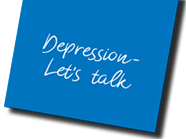What should I know about self-harm?
“Self-harm” refers to a behaviour (like self-injury or overdose of medication or drugs) that is undertaken to intentionally cause harm to a person’s own body. People engage in self-harm for different reasons - sometimes in response to difficult or painful feelings or thoughts, sometimes because they want their lives to change in some way. Reasons for self-harm and severity of self-harm vary, but it is important to consider all self-harm to be “serious”, because it can has serious consequences for a person’s wellbeing and future. Self-harm also tends to be a sign that a person is struggling to cope with stress and difficulties in life.
Self-harm is less helpful than other ways of coping for several reasons. It can cause permanent damage to the body and it increases risk of further self-harm and suicide.
Many young people who self-harm do not reveal it to anyone. They might feel quite alone, but the truth is that there is help available. If you trust a parent, teacher, counsellor, or other adult, it could be helpful to talk to them about your self-harm. Talking in this way can provide an opportunity for you to begin to understand the reasons why you may be self-harming. It can also help you tackle the problems you are experiencing. For example, some young people who self-harm are experiencing bullying, difficulties at home, academic pressures, or other problems, which can be overcome with support from others. Help is available. Your GP can help you directly or can refer you to a counsellor, psychologist or psychiatrist, with whom you can discuss your self-harm and related problems. Sharing one’s experiences of self-harm with a professional or person you confide in, is an important step towards reducing the risk of further self-harm.
If someone close to you is engaging in self-harm, it is important to talk openly with this person, even though you might find it difficult to understand why they are intentionally harming themselves. If they have revealed their self-harm to you, they may be open to seeking help from others too. It is important not to promise that you will keep their self-harm a secret. A secret like this is a great burden for you to carry. You are not expected to deal with it on your own and it is ok to ask for help. Some steps you can take to help a friend:
- You could ask your friend whether they would feel comfortable discussing it with a parent, teacher, GP, or counsellor
- It might also be helpful for you to offer to accompany your friend when they speak to a person that they trust
- If you feel that the person engaging in self-harm is in immediate danger, you may need to confide in a trusted adult, even if the young person concerned refuses to accept help.



